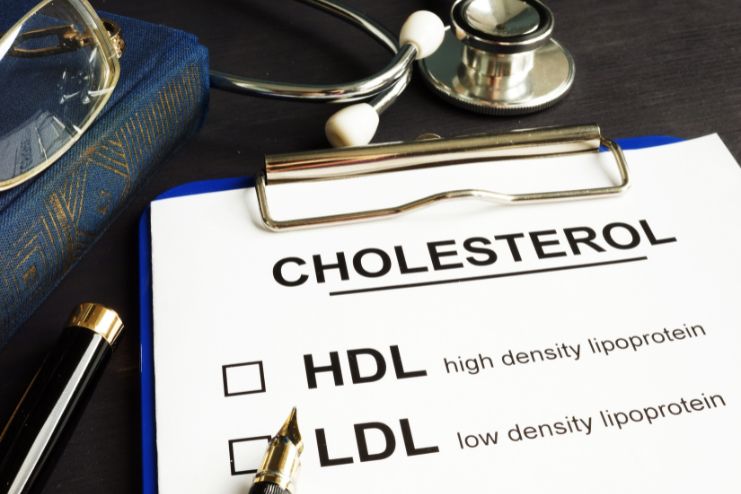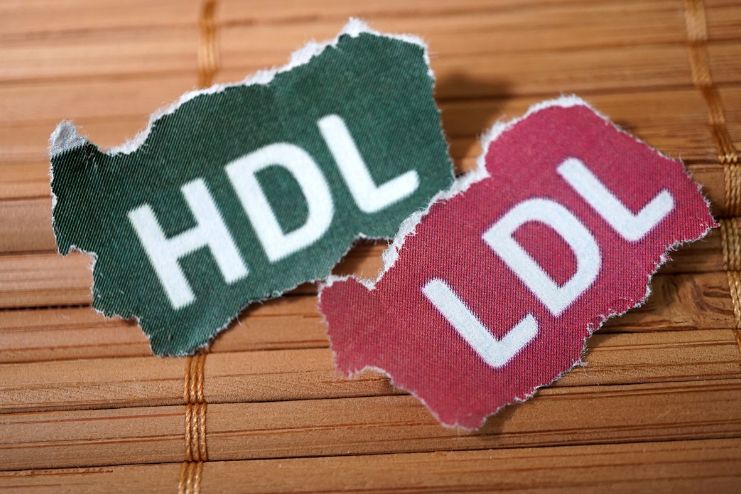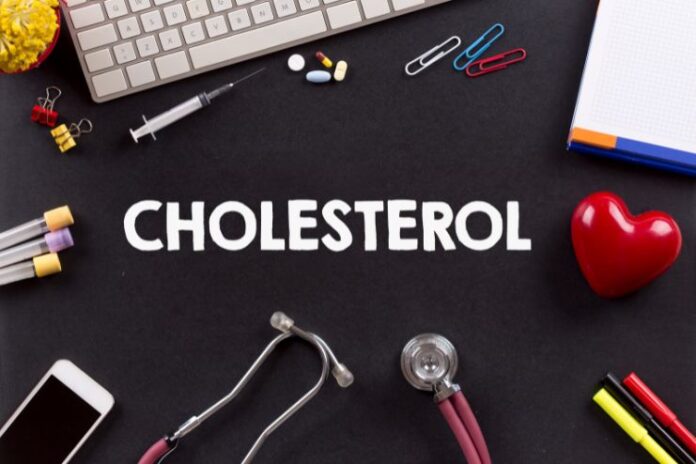Cholesterol’s gotten a pretty bad rap over the years, hasn’t it? It’s one of those words that instantly makes people think of heart attacks and greasy food. But here’s the thing—most of what we’ve been told about cholesterol is either outdated or just plain wrong. These myths have stuck around for way too long, leaving a lot of us confused about what’s actually true and what’s just fear-mongering. It’s time we cleared the air and got the real story out there.
Let’s start with the basics: cholesterol isn’t the villain it’s made out to be. In fact, our bodies need it to function properly. It plays a crucial role in building cells and producing hormones. The problem isn’t cholesterol itself, but having too much of the wrong kind. That’s where things like LDL (the “bad” cholesterol) and HDL (the “good” cholesterol) come in. Knowing the difference can really change the way we approach food, fitness, and our overall health.
A lot of the choices people make—cutting out eggs completely or fearing every bit of fat—come from not understanding how cholesterol actually works. It’s easy to fall into the trap of extreme diets or unnecessary restrictions. But once you start learning what’s fact and what’s fiction, it gets a lot easier to make balanced, healthier decisions that actually support your heart.
So let’s dig into the truth and bust some of those long-standing myths. When we understand what cholesterol does and how to manage it wisely, we can take control of our health without the fear or confusion. It’s not about avoiding cholesterol altogether—it’s about getting smart about it.
Myth: All Cholesterol is Bad

One of the most common misconceptions about cholesterol is the idea that all of it is bad for your health and contributes to heart disease. This oversimplified belief overlooks cholesterol’s essential functions in the body and misses the broader picture of how cholesterol works.
Cholesterol is not inherently harmful—it’s actually necessary for a range of important bodily processes. It helps produce hormones, build cell membranes, and support fat digestion. The confusion arises because high blood cholesterol levels are often linked to an increased risk of heart disease, but this doesn’t mean all cholesterol is bad.
The Difference Between HDL and LDL Cholesterol
To clear up the confusion, it’s important to understand the two main types of cholesterol: high-density lipoprotein (HDL) and low-density lipoprotein (LDL).
- HDL (High-Density Lipoprotein): Often referred to as “good” cholesterol, HDL helps remove LDL cholesterol from the bloodstream, preventing the build-up of plaque in the arteries. This is a protective function that supports heart health.
- LDL (Low-Density Lipoprotein): Known as “bad” cholesterol, LDL can accumulate in the arteries, leading to the formation of plaque that may eventually block blood flow, increasing the risk of heart disease.
Understanding Cholesterol’s Role in Heart Health
By recognizing the distinction between HDL and LDL cholesterol, we can better understand why not all cholesterol is harmful. In fact, maintaining a healthy balance between the two types is crucial for good cardiovascular health.
It’s important to focus on keeping LDL levels in check while promoting higher HDL levels through healthy lifestyle choices. This nuanced understanding helps dispel the myth that cholesterol, in general, is bad for you and emphasizes the importance of managing cholesterol types for optimal heart health.
Read More: Cooking for Heart Health: Delicious Recipes to Lower Cholesterol
Fact: Not All Fats Raise Cholesterol Levels

A widespread misconception about nutrition is the belief that all fats in food contribute to high cholesterol and are inherently unhealthy. This oversimplification fails to acknowledge the complexity of fats and their varying impacts on cholesterol levels. To dispel this myth and promote healthier eating habits, it’s important to understand the different types of fats and how they influence cholesterol.
Understanding the Different Types of Fats
Fats can be divided into three main categories: saturated fats, unsaturated fats, and trans fats. Each type has a distinct effect on our cholesterol levels and overall health.
- Saturated Fats: These fats are often found in animal products, such as fatty meats and dairy, as well as some oils like coconut and palm oil. While excessive intake of saturated fats can raise low-density lipoprotein (LDL), or “bad” cholesterol, it’s crucial to note that not all saturated fats are created equal.
- Unsaturated Fats: These fats are considered heart-healthy and are found in foods like avocados, almonds, and olive oil. Unsaturated fats help increase high-density lipoprotein (HDL), or “good” cholesterol, while lowering LDL cholesterol.
- Trans Fats: These artificial fats are created through hydrogenation and are typically found in processed and packaged foods. They have been shown to significantly raise LDL cholesterol levels and increase the risk of heart disease.
Read More: How To Reduce Cholesterol Naturally?
Making Informed Choices About Fats
Understanding how different types of fats affect cholesterol allows for more informed dietary choices. Rather than avoiding all fats, focus on choosing healthy fats—unsaturated fats in particular—while limiting saturated and avoiding trans fats.
A well-balanced diet that includes the right types of fats can help support heart health and reduce the risk of cardiovascular disease. By adopting a more nuanced approach to fat consumption, we can debunk the myth that all fats are bad and make choices that promote overall well-being.
Read More: Low Cholesterol Diet – 14 Foods That Help Lower Cholesterol
Myth: Lowering Cholesterol Means Cutting Out All Animal Products

A common misconception about cholesterol control is the belief that eliminating all animal-based foods is the only way to manage cholesterol levels. While this idea may seem appealing to some, it oversimplifies the complexities of cholesterol management and may lead people to adopt overly restrictive diets. In reality, moderation and smart choices are more important than total elimination.
The Role of Animal Products in a Heart-Healthy Diet
Animal-based foods like meat, eggs, and dairy can still be part of a heart-healthy diet if consumed thoughtfully and in moderation. The key is understanding the types of fats these foods contain and how they impact cholesterol.
- Lean Proteins: Foods like fish, chicken, and low-fat dairy provide lean protein options that don’t significantly raise cholesterol levels. These foods can be consumed regularly without causing harm to heart health, as long as they are part of a balanced diet.
- Omega-3 Fatty Acids: Certain fish, such as salmon and trout, are rich in omega-3 fatty acids. These fats are known to support healthy cholesterol levels and improve overall cardiovascular health.
A Balanced Approach to Cholesterol Management
Instead of focusing on completely eliminating animal products, the focus should be on the overall composition of the diet. A well-rounded diet that includes a variety of nutrient-rich foods—like fruits, vegetables, whole grains, and lean proteins—can effectively control cholesterol levels.
Incorporating moderate amounts of animal products into your diet, while emphasizing plant-based foods, can help you maintain a balanced approach to cholesterol control without unnecessary restrictions.
By debunking the myth that animal products must be entirely avoided to control cholesterol, individuals can make informed choices that promote better health. Understanding the importance of balance and moderation is crucial for adopting a sustainable and heart-healthy eating plan that supports overall well-being and cardiovascular health.
Fact: Lifestyle Changes Can Significantly Impact Cholesterol Levels

Making positive lifestyle changes can have a powerful impact on cholesterol levels, often more than people realize. While medication plays an important role in some cases, the foundation of managing cholesterol effectively lies in the choices we make each day, particularly when it comes to diet, physical activity, and stress management.
Embracing these habits can lead to lasting improvements in cholesterol levels and overall heart health.
The Role of Diet in Cholesterol Control
Diet is a crucial factor in managing cholesterol levels. By focusing on heart-healthy foods and reducing harmful fats, individuals can significantly improve their cholesterol profiles.
- Heart-Healthy Foods: Incorporating more fruits, vegetables, whole grains, and lean proteins into your diet helps support healthy cholesterol levels. These foods provide essential nutrients and fiber, which aid in reducing bad cholesterol and boosting overall heart health.
- Reducing Harmful Fats: It’s important to cut back on saturated and trans fats, which can increase low-density lipoprotein (LDL) or “bad” cholesterol. Choosing healthy fats, such as those found in avocados, nuts, and olive oil, can have the opposite effect, supporting good cholesterol levels.
READ MORE: Food Swaps to Manage High Cholesterol Without Sacrificing Taste
The Impact of Physical Activity
Regular physical activity is another key component in managing cholesterol. Exercise doesn’t just help with weight management, it also plays a direct role in improving cholesterol levels.
- Lower LDL and Raise HDL: Exercise helps lower LDL (bad cholesterol) while raising HDL (good cholesterol). Activities like walking, cycling, or swimming are great options to get your body moving and improve heart health.
- Small Increases Make a Difference: You don’t need to do intense workouts every day. Even small increases in physical activity, like daily walks or stretching routines, can yield significant benefits for cholesterol control.
Stress Reduction for Better Cholesterol
Stress is often an overlooked factor when it comes to managing cholesterol. Chronic stress can lead to poor lifestyle choices, such as overeating or lack of exercise, which can raise cholesterol levels over time.
- Mindfulness and Meditation: Incorporating stress-reduction techniques like mindfulness or meditation can help lower stress levels and, by extension, contribute to healthier cholesterol levels.
- Adequate Sleep: Ensuring you get enough sleep is also important. Poor sleep has been linked to higher levels of LDL cholesterol and lower levels of HDL cholesterol, so prioritizing rest can have a positive impact on overall health.
By making small but sustainable changes in these areas, individuals can take control of their cholesterol levels. These strategies are not just about reducing the risk of heart disease, but about improving overall well-being and living a healthier, more balanced life.
Myth: Only Older Adults Need to Worry About High Cholesterol

Many younger people overlook the importance of monitoring their cholesterol levels due to a common yet misguided belief that high cholesterol is a concern solely for older adults. This misconception can be dangerous, as recent data shows a concerning increase in cholesterol issues among younger populations.
With lifestyle habits like poor diet choices and lack of physical activity becoming more common, it’s crucial to address this issue early on. High cholesterol is not just a problem for the elderly—it affects people of all ages.
The Growing Concern of High Cholesterol in Younger People
The misconception that high cholesterol only affects older individuals overlooks the reality that many young people are now at risk.
- Lifestyle Factors: Poor dietary habits, such as consuming processed foods high in trans fats and sugars, coupled with sedentary lifestyles, are contributing to higher cholesterol levels among younger individuals.
- Underlying Conditions: Obesity and lack of physical activity are major contributors to the rising cholesterol levels in younger generations. These factors increase the risk of developing high cholesterol, even at a young age.
The Risks of Untreated High Cholesterol
Untreated high cholesterol can lead to serious health consequences if not addressed early.
- Heart Disease and Cardiovascular Problems: Over time, high cholesterol can lead to the build-up of plaque in the arteries, which can increase the risk of heart disease, stroke, and other cardiovascular issues.
- Long-Term Impact: Ignoring cholesterol management in younger years sets the stage for lifelong health complications, which could lead to more severe health issues in the future.
Early Prevention and Healthy Lifestyle Choices
The key to tackling high cholesterol is prevention, and it’s never too early to start making healthier choices.
Developing a healthy diet and regular exercise routine from a young age can significantly reduce the risk of high cholesterol and help prevent cardiovascular problems later in life. Eating a balanced diet full of whole foods like fruits, vegetables, and lean proteins, combined with staying active, can set a strong foundation for heart health.
By dispelling the myth that high cholesterol is a concern only for older adults, we can encourage younger generations to prioritize their heart health. Early intervention, along with making mindful health choices, will go a long way in maintaining cholesterol levels and overall wellness.
It’s essential to acknowledge that cholesterol management is important for everyone, regardless of age. By understanding the risks and taking preventative action early, young people can protect their long-term health and reduce their risk of heart disease in the future.
Fact: Genetics Play a Role in Cholesterol Levels

When it comes to managing cholesterol, it’s crucial to recognize the role heredity plays in determining cholesterol levels and the associated risk of heart disease. While lifestyle choices—such as diet and exercise—do have a significant impact on cholesterol levels, genetics can sometimes have an even stronger influence.
Certain individuals may be genetically predisposed to high cholesterol, regardless of how healthy their lifestyle is. Understanding how genetics interact with cholesterol levels can help people take a more personalized and proactive approach to managing their health.
The Role of Genetics in Cholesterol Levels
Genetic factors can affect how the body processes cholesterol, influencing both LDL (low-density lipoprotein, often referred to as “bad” cholesterol) and HDL (high-density lipoprotein, or “good” cholesterol).
- Genetic Influence on Cholesterol Synthesis and Clearance: Some people inherit genes that cause their body to either produce too much LDL cholesterol or clear it from the bloodstream too slowly. This can result in higher levels of LDL, putting them at an increased risk of cardiovascular disease.
- Family History: If you have a family history of high cholesterol, you may be genetically predisposed to developing elevated cholesterol levels yourself. This genetic factor can make it harder for individuals to maintain healthy cholesterol levels, even with a balanced diet and regular exercise.
Personalized Cholesterol Management
Given the role of genetics, a one-size-fits-all approach to cholesterol management may not always be effective. Personalized strategies become even more essential when considering genetic predisposition.
- Genetic Testing: Genetic testing can offer valuable insights into an individual’s cholesterol risk profile. By understanding the genetic factors at play, healthcare providers can tailor treatments and preventative strategies to suit a person’s specific needs.
- Customized Recommendations: With genetic testing, doctors can give more precise advice. This might include specific dietary changes, lifestyle modifications, or even medication options that align with an individual’s genetic makeup. Personalized care can make managing cholesterol more effective and help prevent heart disease.
Proactive Management for Better Health
By understanding how heredity impacts cholesterol levels, individuals can take a more proactive approach to managing their health.
- Routine Monitoring: Regular cholesterol screenings are crucial, especially if there is a family history of high cholesterol or heart disease. Early detection allows for better management and can reduce the long-term risks of cardiovascular problems.
- Tailored Health Strategies: When paired with personalized recommendations based on genetic findings, people can work more effectively with their healthcare providers to lower their cholesterol and reduce the risk of heart disease.
By acknowledging the influence of genetics on cholesterol, individuals can actively manage their health with a clearer understanding of their unique risks. With the right guidance, lifestyle adjustments, and sometimes genetic testing, it’s possible to take control of cholesterol levels and improve overall heart health.
Myth: Statin Medications Are the Only Solution for High Cholesterol

One of the most persistent myths surrounding high cholesterol is the belief that statin drugs are the only effective treatment. While statins are indeed a widely prescribed and effective medication for lowering cholesterol and reducing the risk of cardiovascular disease, they are not the only option.
Understanding the variety of available treatment strategies is crucial for adopting a comprehensive and personalized approach to managing cholesterol levels.
Lifestyle Changes: A Foundation for Cholesterol Management
We have already discussed this in the above sections. Lifestyle modifications are often the first and most impactful step in managing high cholesterol. These changes can significantly improve cholesterol levels and reduce the risk of heart disease.
- Dietary Adjustments: A heart-healthy diet rich in fruits, vegetables, and whole grains, while low in trans and saturated fats, is key to managing cholesterol. These foods help lower bad cholesterol (LDL) and improve overall cardiovascular health.
- Exercise: Regular physical activity is crucial for maintaining healthy cholesterol levels. Exercise can increase good cholesterol (HDL) and help lower bad cholesterol (LDL), as well as improve overall heart health.
- Stress Reduction: Chronic stress can contribute to unhealthy cholesterol levels. Implementing stress management techniques, such as meditation or mindfulness, can have a positive effect on cholesterol levels and overall well-being.
Alternative and Supplementary Treatments
While statins are a common treatment option, there are other alternatives and supplements that can also help lower cholesterol levels. These options can be used alone or in combination with lifestyle changes, depending on an individual’s needs.
- Supplements: Omega-3 fatty acids, found in fish oil, and plant sterols are examples of supplements that have shown potential in lowering cholesterol. Omega-3s, in particular, are known for their heart-protective benefits and ability to reduce triglyceride levels.
- Non-Statin Prescription Medications: For individuals who may not tolerate statins or do not experience significant benefits from them, there are non-statin prescription drugs available. Bile acid sequestrants and cholesterol absorption inhibitors are examples of such medications, which can help lower cholesterol in different ways.
A Tailored Approach to Cholesterol Management
Understanding that statins are not the only solution allows for a more flexible and personalized approach to managing cholesterol.
- Customized Treatment Plans: Every individual is unique, and a one-size-fits-all approach does not always work when it comes to cholesterol management. Healthcare providers can tailor treatment plans to the individual’s needs, preferences, and tolerances, taking into account factors such as lifestyle, medication tolerance, and overall health goals.
- Holistic Approach: By combining various strategies—such as lifestyle changes, supplements, and non-statin medications—people can manage their cholesterol more effectively and in a way that aligns with their personal health objectives.
By embracing a variety of treatment options beyond statins, individuals can make informed choices that work best for their unique health needs. This approach empowers people to take control of their cholesterol and make decisions that lead to long-term heart health.
Fact: Cholesterol Management Requires an Individualized Approach

When it comes to managing cholesterol, it’s important to understand that there’s no one-size-fits-all approach. Each person has unique factors, such as their risk profile, health goals, and lifestyle choices, that influence their cholesterol levels.
This means that an individualized strategy is essential to achieving the best results. By tailoring treatment plans to a person’s specific needs, healthcare providers can ensure more effective and sustainable management of cholesterol.
The Importance of a Personalized Strategy
A one-size-fits-all solution simply doesn’t work when it comes to cholesterol control. Each person has a combination of factors—age, diet, genetics, and any pre-existing health conditions—that can affect how their body processes cholesterol.
- Age and Genetics: A person’s age and genetic predispositions can significantly impact their cholesterol levels. For example, some individuals may have a genetic tendency toward higher cholesterol, making lifestyle changes alone insufficient.
- Diet and Lifestyle: While some dietary changes and lifestyle modifications work wonders for certain individuals, they might not have the same effect on others. Personalized care ensures that recommendations are based on what will work best for the individual.
- Pre-existing Medical Conditions: People with conditions such as diabetes, hypertension, or obesity may need more specific guidance on managing cholesterol, making tailored strategies even more important.
How Personalized Care Enhances Cholesterol Management
By working closely with healthcare professionals to create a personalized cholesterol management plan, individuals can experience more targeted and effective care. This proactive approach encourages better long-term outcomes.
- Active Participation: When individuals are involved in making decisions about their cholesterol management, they’re more likely to follow through with lifestyle changes and treatments that align with their preferences and goals.
- Regular Check-Ups and Adjustments: Continuous engagement with healthcare providers ensures that any necessary adjustments to treatment plans can be made promptly, improving effectiveness and preventing complications down the line.
- Tailored Interventions: Whether through prescription medication, lifestyle changes, or both, personalized care guarantees that interventions are appropriate for the individual’s specific health needs and preferences.
Why Professional Guidance is Essential
Personalized cholesterol management requires the expertise of medical professionals who can take all relevant factors into account. Regular consultations and evaluations allow for more effective and efficient treatment plans.
- Healthcare Expertise: Professionals can offer guidance on how to best manage cholesterol, taking into consideration genetic factors, lifestyle habits, and any other health concerns.
- Proactive Approach: We encourage you to speak with healthcare providers to promote a proactive approach to cholesterol control. This ensures that individuals get the support they need to make well-informed decisions and maintain healthy cholesterol levels over time.
Ultimately, personalized care is the key to successful cholesterol management. By embracing customized strategies, individuals can confidently work with their healthcare providers to maintain optimal health and reduce the risk of heart disease.
Conclusion
If you’re serious about managing your cholesterol, the first step is cutting through the confusion. It’s not just something older people need to worry about—cholesterol matters at every age. And not all cholesterol is bad; your body actually needs it to function properly. The key is knowing the difference between the good and the not-so-good. Once the myths are out of the way, the path forward becomes much clearer.
One big thing people often miss? Genetics. Your family history can play a huge role in your cholesterol levels. Even if you eat clean and exercise, your numbers might still be high. That’s why a one-size-fits-all approach doesn’t work. It’s about creating a plan that’s tailored to you.
And let’s talk treatment—statins aren’t the only option. There are other meds, supplements, and lifestyle changes that can work just as well. The best results often come from a combination of things. So it’s worth exploring all your choices with your doctor. You’ve got more tools than you think.
The bottom line? Managing cholesterol isn’t about perfection—it’s about progress. Eat smart, stay active, and make choices that support your long-term health. Ask questions, get regular checkups, and trust the process. When you understand what’s really going on, it’s easier to stay in control. You’ve got this.
-
Feb 2024Written by Ankita
-
June 2025Edited by Shreya Mishra
References
- https://www.heart.org/en/health-topics/cholesterol/about-cholesterol/common-misconceptions-about-cholesterol
- https://www.hopkinsmedicine.org/health/wellness-and-prevention/cholesterol-5-truths-to-know
- https://www.cdc.gov/cholesterol/myths_facts.htm
- https://time.com/6287926/cholesterol-myths-debunked/
- https://www.healthline.com/nutrition/fat-and-cholesterol
- https://www.ncbi.nlm.nih.gov/pmc/articles/PMC10495817/
- https://www.ncbi.nlm.nih.gov/pmc/articles/PMC6053258/
- https://www.drrons.com/cholesterol-animal-fats-and-heart-disease-a-modern-myth.aspx
- https://integrisok.com/resources/on-your-health/2022/october/fewer-animal-products-can-lower-your-cholesterol
- https://www.health.harvard.edu/heart-health/vegetarian-and-vegan-diets-may-lower-cholesterol-levels
- https://www.mayoclinic.org/diseases-conditions/high-blood-cholesterol/in-depth/cholesterol/art-20045192
- https://www.heart.org/en/health-topics/cholesterol/prevention-and-treatment-of-high-cholesterol-hyperlipidemia
- https://www.ncbi.nlm.nih.gov/pmc/articles/PMC6378495/
- https://www.mayoclinic.org/diseases-conditions/heart-disease/in-depth/heart-disease-prevention/art-20046502
- https://www.betterhealth.vic.gov.au/health/conditionsandtreatments/heart-disease-and-food
- https://communityhealth.mayoclinic.org/featured-stories/cholesterol-myths
- https://www.medicalnewstoday.com/articles/medical-myths-all-about-cholesterol
- https://pubmed.ncbi.nlm.nih.gov/10999646/
- https://www.hopkinsmedicine.org/health/conditions-and-diseases/high-cholesterol/older-adults-and-high-cholesterol-what-you-need-to-know
- https://www.betterhealth.vic.gov.au/health/conditionsandtreatments/genetic-factors-and-cholesterol
- https://www.cdc.gov/genomics/disease/fh/FH.htm
- https://www.ncbi.nlm.nih.gov/pmc/articles/PMC10801839/
- https://www.yalemedicine.org/news/should-you-take-a-statin-for-high-cholesterol
- https://www.aarp.org/health/conditions-treatments/info-2021/statins-myths.html
- https://www.ncbi.nlm.nih.gov/pmc/articles/PMC7711012/
- https://anotherchancerehab.com/how-personalized-treatment-plans-boost-recovery/
- https://personalizedhealth.duke.edu/our-work/what-personalized-health-care
- https://www.ncbi.nlm.nih.gov/pmc/articles/PMC6366608/
In this Article




![Best NAD+ Supplements for Energy, Aging, and Cellular Health [2025 Edition] Best NAD+ Supplements for Energy Aging](https://www.healthspectra.com/wp-content/uploads/2025/05/Best-NAD-Supplements-for-Energy-Aging-218x150.jpg)














